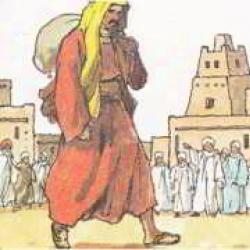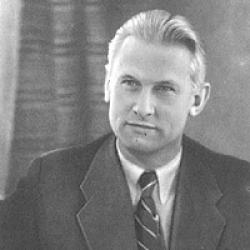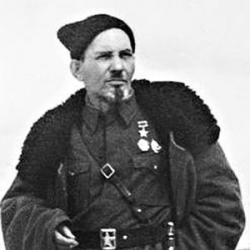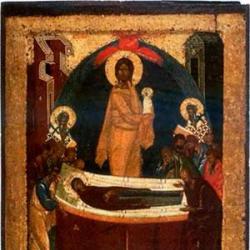Pericles leader of Athenian democracy presentation. Athenian democracy under Pericles. Democracy is a unique feature of ancient Greek civilization, which reached its greatest flourishing in Athens, one of the most. Transition to learning new material




Reforms of Solon 594 BC e. Greco-Persian wars BC. e. Rise of Athens under Pericles 443 BC. e.


People's Assembly The power of the people Strategist - Pericles Passes laws Decides to start a war and sign peace Conducts elections of a strategist and other responsible positions Manages the treasury Promotes the implementation of laws Manages the defense of the city Reports to the people's assembly on the implementation of assigned tasks and the use of public funds




Pericles - orator Once the Spartan king asked the famous wrestler who was stronger - he or Pericles. He replied: “Even if I put Pericles on both shoulders, then even then he will prove that I am defeated, and the people will believe him!” What qualities of Pericles does this indicate? Who is a speaker? A speaker is a person who knows how to make speeches and convince listeners





Democracy under Pericles reached its peak. This is evidenced by: The decisive role in governing the country passed to the People's Assembly and the Council of Five Hundred. Under Pericles, many government positions existed. Government positions other than strategists could be filled by drawing lots. Thanks to Pericles, those who were involved in politics began to receive salaries. Without paying judges, the court would end up in the hands of the rich alone. Now the poor citizens of Athens were also able to participate in the government of the state. Pericles was elected 15 times by the People's Assembly as the first strategist. Citizens trusted him. The decisive role in governing the country passed to the People's Assembly and the Council of Five Hundred. Under Pericles, many government positions existed. Government positions other than strategists could be filled by drawing lots. Thanks to Pericles, those who were involved in politics began to receive salaries. Without paying judges, the court would end up in the hands of the rich alone. Now the poor citizens of Athens were also able to participate in the government of the state. Pericles was elected 15 times by the People's Assembly as the first strategist. Citizens trusted him.


Complete tasks 3. Match the names or name and activity, description Names, title Activities, description 1) Sophocles A) The first strategist, under whom Athens experienced its heyday 2) Parthenon 3) Pericles 4) Myron B) temple in Athens, dedicated to the patroness of the city C) the sculptor who created the statue of the discus thrower D) the author of the tragedy "Antigone"

 2. Pay for the performance of official duties 5. Accountability of officials 8. Elected positions 9. Equality of citizens 3. Power of the people 1. Citizens are a minority 4. Women did not participate in the government of Athens 7. Laws protected only citizens 6. Drawing lots for voting (position may take the unworthy)
2. Pay for the performance of official duties 5. Accountability of officials 8. Elected positions 9. Equality of citizens 3. Power of the people 1. Citizens are a minority 4. Women did not participate in the government of Athens 7. Laws protected only citizens 6. Drawing lots for voting (position may take the unworthy)

Democracy is a unique feature of ancient Greek civilization, which reached its greatest flourishing in Athens, one of the most powerful policies of Ancient Greece. And the era of Pericles is called by historians the “Golden Age” of democracy: it was during the period of his activity that the concept of democracy was filled with real content. Many historians are still convinced that by studying the Athenian democracy of the time of Pericles, important lessons can be learned for modern politicians.
Explain why the period of Pericles' reign is called the "heyday of Athenian democracy."


The leader of the Athenian democracy Pericles 1. The leader of the Athenian democracy Pericles After the Greco-Persian wars, Athens began to flourish. Pericles was at their head at that time. In 443 BC. e. The Athenians elected him for the first time to the highest position in their polis. He was then re-elected 15 more times. Historians say that Pericles was an outstanding statesman and patriot. He (was famous as a wonderful speaker. Eloquence (the ability to speak correctly and convincingly) was a very important quality for a politician. After all, there were no newspapers, radio, or television at that time. To achieve success, it was necessary to convince the people's assembly that one was right. For the power of words, contemporaries They called Pericles the Olympian, comparing him with Zeus. Pericles devoted all his strength and all his time to caring for Athens and its citizens. He was honest and selfless. “Although he made the city... the greatest and richest, although he surpassed many kings and tyrants in power ... wrote the master Plutarch, he did not increase his fortune by a single drachma (drachma is an Athenian coin) compared to what his father Pericles left him, made several changes to the administration of the polis, to the rights of citizens, thereby continuing the reforms of Solon and Cleisthenes Under Pericles, democracy finally emerged in Athens.


2. People's Assembly. The main body of government was the people's assembly. All citizens took part in it. A citizen was considered a man who had reached the age of 20 and whose mother and father were both Athenians. The people's assembly met 34 times a month and usually took place in the city center on Pnyx Hill. At the meeting, all the main issues of the life of the city-state were decided and new laws were adopted.


Any citizen had the right to express his opinion on the issue under discussion. One contemporary wrote: “Everyone, standing up, gives advice, be it a carpenter, coppersmith, shoemaker, merchant, shipowner, rich, poor, noble, rootless.”



3. Officials. The People's Assembly elected numerous officials of the polis (we could call them officials). After a year they reported to the meeting. Those who performed poorly were punished, most often they paid a fine. Officials dealt with various issues: they monitored the flow of money into the treasury, compliance with laws and rules of trade in the market, cleanliness on the streets, etc.

4. Court The court played a large role in the life of Athens. All citizens over 30 years of age could participate in its work. 6 thousand judges were elected annually, but they usually did not all sit together. Separate commissions were created for different cases. The judges did not know in advance which commission they would sit on. This eliminated the possibility of bribery.

5. Introduction of payment Participation in government required citizens to spend a lot of time. Not all Athenians could come to meetings of the national assembly and court, or be officials. The poor had to work constantly: peasants cultivate their land, artisans work in their workshops. Every time the question arose for them: should they go to a meeting today or earn money for a living? Pericles thought this was wrong. He wanted even the poorest citizens to participate in government, and he found a way to achieve this.

As ancient authors say, at his suggestion the state began to pay judges. When they met, they received enough money to live for one day. Then they introduced payment for some positions. Later they began to pay those who came to the meeting of the national assembly. Thanks to this, even the poorest citizens had a real opportunity to participate in government. Pericles also achieved the establishment of pensions for orphans and disabled people.

In no other Greek state did the people have as many rights as in Athens. But these were minority rights. In total, approximately 200 thousand people lived in Attica, but there were only 3040 thousand citizens. Women citizens could not participate in government. To the ancient Greeks, the idea that a woman could come to a national assembly seemed simply ridiculous. Free people who moved to Athens from other cities, much less slaves, had no political rights.

6. Construction in Athens under Pericles. Pericles did not want ordinary citizens to turn into beggars living at the expense of the state. Therefore, at his suggestion, temples, public buildings, and fortifications were built in the city. Athens has become the most beautiful city in Greece. Construction provided jobs to many citizens. People of various professions, from loaders and donkey drivers to skilled sculptors and architects, were employed at construction sites. The Athenians mastered new types of craft. Gradually, many of them became good specialists.


7. Military strength of Athens Pericles did a lot to strengthen the power of his city. He saw the main strength of Athens in the fleet. Every year for eight months the fleet sailed throughout the Mediterranean Sea. The sailors were also paid money at this time. The Athenian fleet destroyed the pirates. The time has come for the heyday of maritime trade. The Athens port of Piraeus has become a major trade center. Sometimes up to 400 ships gathered here. The Athenians had great benefits from trade.


8. Slaves. A significant part of the inhabitants of Athens were slaves. “Everyone has slaves,” argued one of the writers. “We are free, because we live by the labor of slaves,” echoed the famous speaker. Slaves worked in the fields, in workshops, and in citizens' homes. The biggest use of slaves was in the silver mines, where they worked day and night. The main source of slaves was war. Many slaves were already born in the master's house. There were few Greeks among the slaves, because those captured were usually ransomed by relatives. Slaves were mainly brought from other countries of Thrace, the Northern Black Sea region and Asia Minor. There were several famous slave markets in Greece. On the first day of each month, slaves were traded in the Athenian agora. The slave climbed onto the platform, and the herald praised his virtues in order to increase the price. The slave had absolutely no rights. He had neither property nor family. They did not see him as a person, he was called a talking instrument. Sometimes slaves ran away from their owners. Those caught were beaten with whips and the inscription was burned on their foreheads: “Hold me. I’m running away.” The death of Socrates was the last and most revealing, his most brilliant philosophical work, which caused deep fermentation of minds and a powerful public resonance throughout many centuries of human history. The young student of Socrates, Plato, who was present at the trial, experienced such a strong moral shock that he became seriously ill. "How to continue to live in a society that punishes wisdom?" - this is the question that confronted Plato in all its drama and which gave rise to another question: “What should a society be like that is built in full accordance with wisdom?” Thus was born the first philosophical utopia about a “fair” (for its time) social system, which subsequently had a great influence on the emergence and development of utopian socialism

Training equipment:
- map "Ancient Greece in the 5th century BC,
- computer,
- multimedia projector,
- projection screen.
Lesson type: presentation lesson
During the classes
I. Organizational moment.
II. Updating students' basic knowledge on the topic: "In the Theater of Dionysus"
1. Card "What is the difference between ancient Greek theater and modern theater?"
2. Creative laboratory. On behalf of an Athenian slave, tell us about your life: How did you lose your freedom? What do you do everyday? Who is your boss and how does he treat you? Let your story have a happy ending.
3. Look at the picture and answer the questions (Slide 1)
Consider the plan of an ancient Greek theater. The main parts of the theater building are designated by numbers 1, 2, 3. What were these parts called?
What is the purpose of each of the three parts?
3. Solve anagrams. (Write on the board)
LISHE, LOFOX, DIPEVR
What made these playwrights famous?
Aeschylus came up with a lot of new things for the theater. For the first time he introduced drama (i.e. the action of two persons), and came up with a set.
Sophocles - wrote more than 120 plays. In his plays, he highlighted some character trait - courage, wisdom, pride.
Euripides - invented a curtain for the theater, behind which the next stage (scenery) was prepared. His plays used effects such as characters flying into the air.
III. Transition to a new topic: (slide 2)
Question: - Who owns the following words?
"Mother black, long-suffering earth,
From which I threw down the pillory,
A slave before, but now free:"
Explain what this passage is about.
In what year did Solon carry out the reforms?
Here is a diagram of the management of the Athenian polis (slide 3). What time does it belong to?

Solon introduced laws that changed the lives of the Athenians. What was their novelty for Athens?
Let's remember the scheme of government under Solon.

What did the Athenians call this system of government?
What is democracy?
So, we remembered that Solon laid the foundations of democracy in Athens. In the 5th century BC. in Athens, any citizen - rich or poor, noble or ignorant - could participate in the public assembly. Athenian democracy received its final development under Pericles, and the state achieved its greatest power and splendor.
Task for students: What changed in government during the reign of Pericles?
Topic of our lesson: Athenian democracy under Pericles (slide 4)
What personal qualities did Pericles have?
(student message).
In 443 BC. Pericles began to rule the Athenian state.
IV. Working with the textbook, paragraph 1, 40.
Exercise: Find in the text and highlight what the People's Assembly did. Read the corresponding lines from the text (slide 5)

What body began to play the most important role in the Athenian polis under Pericles?
Who took part in the Meeting?
Pericles believed that the poor should have the same rights as rich citizens. But a poor person could not engage in government activities, because... had no means of subsistence.
Pericles said: “The people must be completely independent of the influence of the rich, free from poverty, need and worries, in order to be able to engage in state affairs through participation in court cases, meetings of the State Duma, and acquire knowledge, education and experience.”
At the suggestion of Pericles, the poor began to be given a small payment for each day for the performance of state duties. This payment was called a “diet”.
Pericles also took care of what brought Athens the greatest glory. During the years of his reign (and the people's assembly elected Pericles as strategist for 15 years in a row), magnificent temples and statues were erected in Athens on the Acropolis (slides 6, 7, 8).
This construction caused discontent among the aristocrats, accusing the first strategist of ineptly wasting huge amounts of money.
Exercise: The reasons for their discontent will become clearer to us from the following story. Watch it (dramatization), see Appendix 1 .
Working with a historical document (p. 183)
Question: - Find in the document what personal qualities of the politician were in demand in Athens?
Even at the beginning of his political career, Pericles completely abandoned the traditional way of life of the people of his circle: he almost never went to visit, did not attend festivals, reduced his household to a minimum, and devoted almost all his time to state affairs.
The only entertainment for him was talking at home with friends. The philosophers Anaxagoras, Zeno, young Socrates, the poet Sophocles, artists, and the sculptor Phidias met in the house of Pericles. The soul of this circle was the second wife of Pericles, the intelligent and educated Aspasia, a woman of extraordinary beauty.
They also helped Pericles in government affairs.
However, Pericles had not only supporters, but also enemies. They slandered him and his friends and accused them of crimes. Phidias was accused of concealing gold during the creation of the statue of Athena. To prove that he was right, Phidias removed the golden clothing from the statue, weighed it and became convinced of the honor of this man (he died in prison).
Lesson summary: We learned that Ancient Greece gave examples of democracy, showed the image of a real citizen who knows how to intelligently combine rights and responsibilities in his activities.
V. Consolidation of what has been learned in the lesson. (Students take the test) see. Annex 1 .
VI. Reflection
1. How did I learn the material?
- I gained solid knowledge, understood all the questions - 9-10 points.
- Partially mastered the material - 7-8 points.
- More work needed - 4-6 points
2. How I worked, where I made mistakes; Are you satisfied with your job?
- I coped with everything myself, satisfied with my work - 9-10 points.
- Made mistakes (at what stage) - 7-8 points.
- Failed to cope with (what tasks) - 4-6 points.
3. My opinion about the lesson (wishes), what I liked, what I didn’t like.
Homework: individually on cards
Survey D. z:
I. Questions and tasks for review:
1. Solve the crossword puzzle: 1
5 ![]()
1. Place for spectators.
2. A semicircular platform where actors and choir performed.
3. The place where the decorations were attached, masks and costumes were stored.
4. Companions of Dionysus, singing songs of praise to God.
6. A type of theatrical performance that depicted the exploits of heroes, suffering and death.
2. Solve anagrams. What made these playwrights famous?
LISHE, LOFOX, DIPEVR, NAFASTIRO
(Aeschylus, Sophocles, Euripides, Aristophanes)
3. What does this mean:
· sing praises;
· song of the goats;
· merry procession?
Transition to learning new material:
Conversation:
What is the name of the country we live in?
What is the name of the highest official in our state?
Who is our president now?
How did he become president?
What is the name of the state in whose governance the people participate?
We have a democratic state because the people choose.
Which state of the ancient world had a similar system of government?
What will we talk about in our lesson?
The topic of our lesson today is Athenian democracy under Pericles (write in your notebook).
Learning new material.
Teacher's word: Meanwhile, in the 5th century. BC e. There were no kings or nobles in Athens. In no other country of the Ancient World did so many people, so many ordinary workers, participate in governing the state as in Athens.
What did the Athenians call government in their state? (Democracy)
Who was considered an Athenian citizen? (Citizens by law were considered native Athenians whose both parents - both father and mother - were citizens)
Most of the demos were craftsmen and small traders, construction workers, stone carvers, sculptors, “ship mob” - oarsmen, sailors and helmsmen of warships, carpenters, ship rope twisters, boatmen, as well as innkeepers in Piraeus and Athens, and farmers of Attica.
All these mostly poor people ruled the Athenian state. At that time, they were led by Pericles, one of the largest Athenian statesmen, who came from an aristocratic family. In 443 BC. The Athenians elected him for the first time to the highest position in their polis.
Pericles made a strong impression on people, behaved with dignity, had a calm, even voice and excellent self-control. He surpassed everyone with his art of making speeches. He was a very purposeful person. Pericles did nothing except state affairs.
No single room could accommodate all Athenian citizens. The people's assembly to decide state affairs met on the Pnyx, a gentle hill in the open air in the western part of the city.
The supreme power in the Athenian state belonged to the People's Assembly - the highest authority that expressed the will of the people.
We read point 1 on page 191 and then draw up a diagram.

How often did the People's Assembly meet to decide government affairs?
Who did not participate in the Meeting?
Teacher: - Migrants, women, and especially slaves could not even attend the meeting under any pretext.
Who did the Assembly choose?
(The people's assembly elected 10 strategists every year. Citizens expressed their will by raising their hands. The duties of the first strategist included leading the army and navy, and managing the relations of Athens with other states. Note that if the strategist had made a mistake and lost the trust of the demos, he would not have been elected for a new term.)

What functions did the People's Assembly perform?
In Athens, in addition to strategists, there were many positions. Usually, several citizens sought to occupy the same position - a judge, or a tax collector, or a market supervisor. Which of them should be preferred? And then they drew lots: whoever gets the white bean is considered the chosen one.
Any free citizen of Athens, regardless of nobility and wealth, could become a tax collector, judge, or market supervisor. But most often they were rich people.
Why do you think? Initially, there was no payment for positions held. Therefore, the poorest citizens avoided the drawing of lots. But in the middle of the 5th century BC. At the suggestion of Pericles, a law was passed according to which citizens elected to office began to be paid money from the treasury for each working day. This money was enough to buy bread, vegetables, and fish for the whole family.
Pericles made Athens the greatest and richest city. Indeed, at his suggestion, magnificent temples, porticos and statues were erected in Athens. Therefore, he had both enemies and friends. Among Pericles' friends were such famous people as Anaxagoras, Sophocles, Herodotus, and Phidias. And all these people gathered for conversations and arguments in his house and the house of his wife Aspasia
Consolidation: Yes-no game
1. Is it true that in Athens in the 5th century BC. Is any citizen - rich or poor, noble or ignorant - capable of participating in government? (Yes)
2. Is it true that power in Athens belonged to the demos, which is why the Greeks called government in their country “democracy”? (Yes)
3. Is it true that all residents of Athens, starting from the age of 20, participated in the People's Assembly? (No)
4. Is it true that the People’s Assembly elected the first strategist by secret ballot: by giving white or black stones? (No)
5. Is it true that a speaker is a person who can speak concisely and give accurate and to-the-point answers? (No)
6. Is it true that for the first time in history, under Pericles, payment for the performance of elective positions was introduced? (Yes)
7. Is it true that on all Athenian statues and buildings Pericles had the inscription “Erected by Pericles with his own money”? (No)
8. Is it true that the policy pursued by Pericles met the interests of the majority of Athenian citizens, i.e. demos? (Yes)
9. Is it true that at the time of Pericles, Athens was the most powerful state of Hellas, its cultural center? (Yes)
Reflection: Sinkwine
1 line - topic or subject (one noun); People's Assembly
Line 2 - description of the item (two adjectives); free, long
Line 3 - description of the action (three verbs); announced, approved, accepted
Line 4 - a four-word phrase expressing an attitude towards the subject; participation of the demos in government management.
Line 5 - a synonym that generalizes or expands the meaning of a topic or subject (one word). control
Average activity in class, answers are incomplete, without using historical data. terms
completion of all tasks, both oral and written, according to the schemes

- The Athenians came up with the best device - democracy. All people were equal, and everyone could express themselves if they wanted and had the ability. And during the time of Pericles, Athens became the most powerful democratic city in Greece.
- Did you know that about a third of the Athenian population were slaves? “A slave is animate property and the most perfect of all instruments.”
- Compare the opinions of Antoshka and the scientists. What contradiction is observed?
- What is the question? Compare it with the author's.

YOUR FORMULATION OF THE PROBLEM MAY NOT COICH THE AUTHOR'S. PLEASE CHOOSE THE FORMULATION IN CLASS THAT IS MOST INTERESTING TO YOU!

Athenian democracy under Pericles
Drawing – “New Soldier” magazine No. 83

1. SLAVE ECONOMY
2. LEADER OF THE PEOPLE
3. ATHENIAN DEMOCRACY

LET'S REMEMBER WHAT WE KNOW
Required level. Select statements in the table that relate to the concept of “democracy” and mark them with a “+” sign.
Increased level. Write down in the table the facts from the history of Ancient Greece that correspond to each correct statement.
Policy- is a city-state, a community of free full citizens who have the right to participate in its management.
A method of governing a state in which all major issues of power are decided by a majority vote of citizens is called aristocracy .
Slave- This is a person deprived of freedom.
In ancient Greek city policies citizens had no right to participate in the government of their state.
To complete the task, you must use the built-in Microsoft PPT tools in view mode (PEN tool)

SLAVE ECONOMY
Guess what the well-being of the artisan’s family rests on.
The animation is set to click. The job fades and the picture appears (page 168). The task is completed in viewing mode using the built-in Microsoft PPT tools
In the house of an Athenian potter-painter

SLAVE ECONOMY
Increased level. Determine what benefits the use of slave labor gave the Greeks.
Argument(s)
I believe that _______
But in other way, ________________
because_________
__________________,
because________
__________________
__________________ ________________
________________
________________ __________________

ATHENS DEMOCRACY
Required level. Write down the signs of Athenian democracy in the table.
Increased level. In the blank space of the table, write down the evidence that Athens in the 5th century B.C. were a slave-owning democracy
Maximum level: draw a conclusion
Signs of Athenian democracy
_________________
Evidence of democracy
_________________
_________________________
slave owners
_________________
_________________________
_________________________

LEADER OF THE PEOPLE
using paragraph 40, paragraphs 1 and 2, make up 3 questions for each paragraph.
____________________________
____________________________
____________________________
____________________________
____________________________
Ancient bust

LEADER OF THE PEOPLE
Why is the reign of Pericles considered the heyday of Athenian democracy?
____________________________
____________________________ ____________________________
____________________________
____________________________
____________________________
____________________________
Ancient bust

LEADER OF THE PEOPLE
Required level. Place events and phenomena in the correct sequence.
1. Now anyone - both rich and poor - could be elected one of the officials.
2. Participation in the national assembly and service in elected positions were paid from the treasury of the policy.
3. After victories in the Greco-Persian Wars, more than 150 thousand prisoners of war were sold into slavery in the markets of Hellas.

LEADER OF THE PEOPLE
Increased level. What process is represented here: the decline or the rise of Athenian democracy under Pericles? Write one piece of evidence for your statement in the table. Provide one or two pieces of evidence for your point of view.
Maximum level. Write down two or three proofs of your statement in the table.
Argument(s)
I believe that _____________________
because________________________
________________________________,
_________________________________

- Paragraph 40, questions orally.
- Prepare for different level testing

Compare Athenian democracy under Solon and under Pericles. Present your answer in the form of a table.
general
differences
Democracy under Solon
Democracy under Pericles

DISCOVERING NEW KNOWLEDGE
DURING THE TIME OF PERICLES, ATHENS BECAME THE MOST POWERFUL AND DEMOCRATIC POLIS IN GREECE.

LESSON PROBLEM
WHY DID FREE GREEKS USE THE LABOR OF SLAVES?
The animation is set to click. The question disappears, the author’s formulation of the problem situation appears

SLAVE ECONOMY
What do you, a person of the 21st century, think: can various benefits justify the use of slave labor? Explain your answer.
Increased level. Write down two or three arguments or consider this historical phenomenon from different positions, confirming each with an argument.
Maximum level. Complete the task at an advanced level, but use additional information not covered in class.
Argument(s)
I believe that _______
because_________
But in other way, ________________,
_________________,
because________
__________________
__________________ _________________________________
________________
________________ ________________________________
The animation is set to click. The task fades and the table appears.

completion of all tasks, both oral and written according to the schemes, active work in the lesson, reasoned answers using historical terms
completion of all tasks, both oral and written according to the schemes, 1 oral response in class
completion of all tasks, both oral and written, according to the schemes






